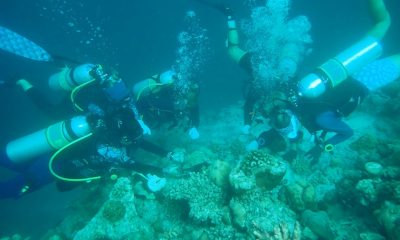Action
Soneva embarks on project to launch one of world’s largest coral nurseries

Partnership with Coralive and Ark2030 aims to propagate 50,000 coral fragments every year.
Soneva has launched an ambitious programme to restore coral reef systems and create a coral hub for the Maldives.
A partnership between the Soneva Foundation, the Swiss environmental organisation Coralive and the global ecosystem restoration organisation Ark2030, the project aims to protect and regenerate this vital marine habitat, which has been decimated by rising sea temperatures, ocean acidification, El Niño events and ocean pollution.
The coral restoration programme, located onsite at Soneva Fushi in the Baa Atoll, is the largest conservation initiative to be supported by the Soneva Foundation.
Founded in 2010 by Sonu and Eva Shivdasani, this UK-registered charity builds on their belief that a business must have a purpose beyond profit and invests in the development of global projects that have a positive environmental, social and economic impact.
“With the global warming crisis, the Maldives has little influence over the actions of the big greenhouse gas emitting countries. We can’t bet our future on a wish and a prayer that the big countries decarbonise their economies in time to halt climate change before it wipes out our coral reefs. We need a back-up plan,” said Sonu Shivdasani, CEO and Co-Founder of Soneva.
“When finished, the coral farm at Soneva Fushi will be 1 hectare in size – one of the largest coral farms in the world – and in the ensuing years it is our goal to cultivate 1 hectare of coral each year at each of our resorts. This is the scale that is needed to have a meaningful impact and it also represents a huge opportunity for the Maldives to become a global leader in an activity that will likely have considerable future demand.”
Coral reefs are among the most biodiverse ecosystems on the planet, providing habitat for a quarter of all marine life, as well as protecting coastal communities from storms and erosion, with an estimated half a billion people worldwide reliant on reef systems for their livelihoods.
Over the last three decades, more than half of the earth’s corals have died, with scientists predicting that up to 90 percent of all reefs will be lost over the next 20 years if decisive action is not taken.
The large-scale, in-situ restoration programme at Soneva Fushi aims to restore coral habitats and improve the resilience of the marine ecosystem around the Baa Atoll resort, with the long-term goal of becoming a coral restoration and knowledge hub for the Maldives and beyond.
Following a two-year study to define the most suitable restoration techniques for the Maldives’ unique marine environment, it will become the largest Mineral Accretion Technology (MAT) coral nursery in the world.
Once fully operational, the nursery will cover one hectare of ocean and propagate 50,000 coral fragments every year.
The ultimate aim of the programme is to regenerate the reef back to the state in which it existed 25 years ago, covering out-planted corals across 40 hectares over the next decade.
Channelling low voltage electricity through metal structures placed underwater, MAT creates the ideal environment for corals to grow – as the electrons flow, calcium carbonate (CaCO3) deposits begin to accumulate on the structures, the same mineral that forms the skeleton of most hard and some soft coral species. Corals that have been placed on MAT structures have been observed to grow up to four times faster than other propagation methods, as well as having significantly higher survival rates during bleaching events.
At Soneva Fushi, the nursery will be cultivated from ‘corals of opportunity’ – rather than being harvested, these are corals that have been broken or damaged due to storms, waves or human activity.
Located at the outer edge of the house reef, the coral nursery at Soneva Fushi will comprise 432 table structures, arranged in three circular clusters.
The project is divided into three distinct phases: the initial installation phase, where the tables and nursery infrastructure will be placed into the water, expected to take up to three months; a two- to three-month population phase, which will include scouting for donors and creating a detailed database to record taxonomy, growth and survival rates; and the third, ongoing maintenance and monitoring phase to ensure the health of the corals, monitor predation and verify that the MAT equipment is fully functional.
Each table structure will be given its own unique code, where coral growth rates and health are recorded twice a year.
The restoration site at Soneva Fushi will be constantly monitored via an Aqualink Smart Buoy, which records temperatures at both the surface and the ocean floor, with all data accessible through the cloud. In phases two and three of the project, guests at Soneva Fushi will be invited to join in the restoration efforts themselves – a unique opportunity to be part of this ground-breaking project.

Founded in 1995, Soneva is an award-winning sustainable luxury resorts operator. At Soneva Fushi, Soneva Jani and Soneva in Aqua in the Maldives, and Soneva Kiri in Thailand, true ‘luxury’ is defined by peace, time and space. Each day, guests are encouraged to discover the SLOW LIFE, reconnecting with themselves and the natural world through rare, unforgettable experiences that inspire and enthral.
Soneva is a pioneer for responsible tourism, combining a conscientious, proactive approach to sustainability with exquisite luxury and intuitive personalised service. Carbon neutral since 2012, Soneva launched its Total Impact Assessment in 2016, a first for the hospitality industry, measuring its social and environmental impacts.
A mandatory 2% environmental levy is added to every Soneva stay, with proceeds going towards the not-for-profit Soneva Foundation to offset both direct and indirect carbon emissions from resort activities and guest flights. The Foundation funds a range of global projects that have a positive environmental, social and economic impact.
Action
Sun Siyam Olhuveli invests in staff wellbeing with upgraded sports facilities
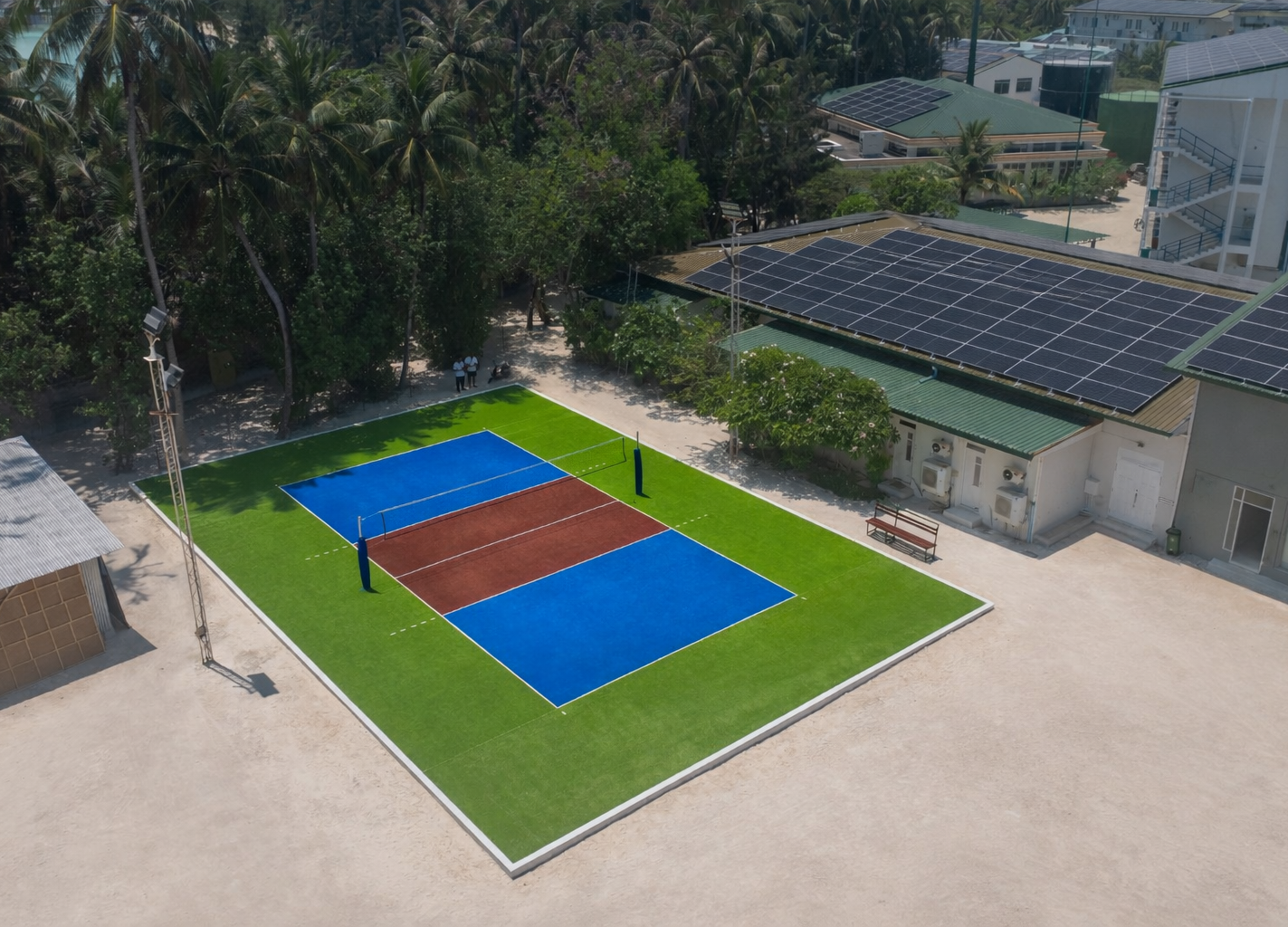
Sun Siyam Olhuveli has unveiled newly upgraded volleyball and futsal grounds for team members, reaffirming its commitment to employee wellbeing while advancing responsible, future-focused operations. The renovated volleyball grounds were officially inaugurated on 14 February, while the upgraded futsal ground opened earlier this year—together creating dedicated spaces for recreation, connection, and healthy competition across the island.
Designed to encourage regular physical activity and camaraderie beyond the workplace, the improved sports facilities represent a thoughtful investment in social infrastructure. They reflect a belief that wellbeing is fundamental to long-term performance, nurturing morale, teamwork, and a strong sense of belonging among team members.
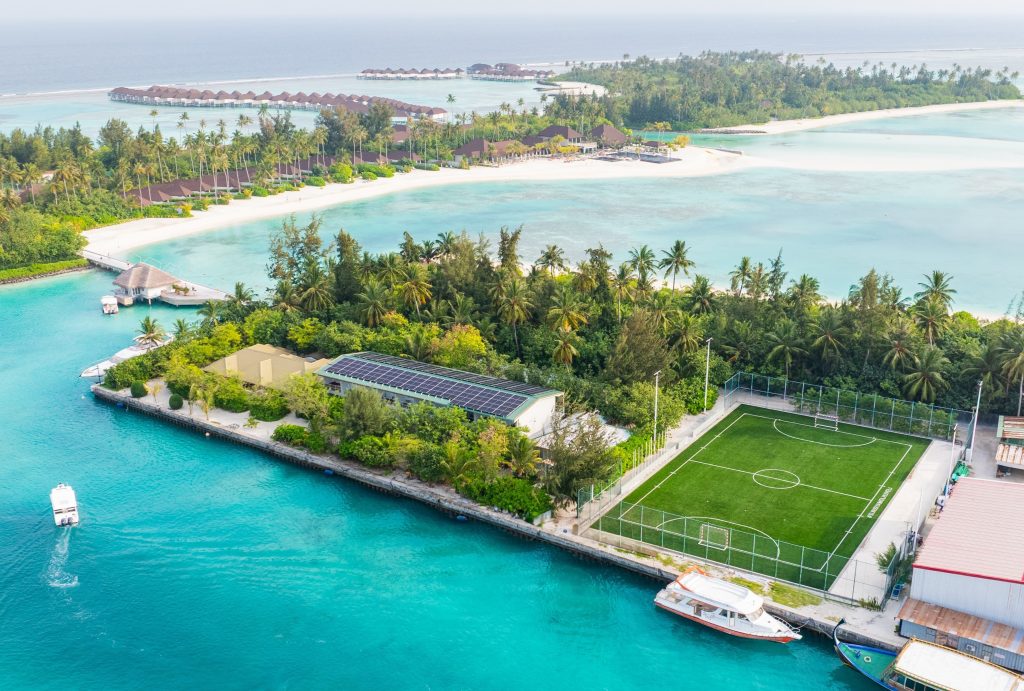
Alongside these developments, the resort has implemented NO BIN DAY every Tuesday, a practical initiative aimed at minimising food waste across operations. By encouraging mindful planning and responsible consumption, the initiative challenges teams to rethink habits around food—transforming sustainability into a shared, everyday discipline.
“Taking care of our people and the environment must go hand in hand. By investing in spaces that support our team’s wellbeing and introducing simple disciplines like NO BIN DAY, we are building a culture where responsibility is lived every day—naturally, collectively, and with purpose,” said Hassan Adil, General Manager of Sun Siyam Olhuveli.
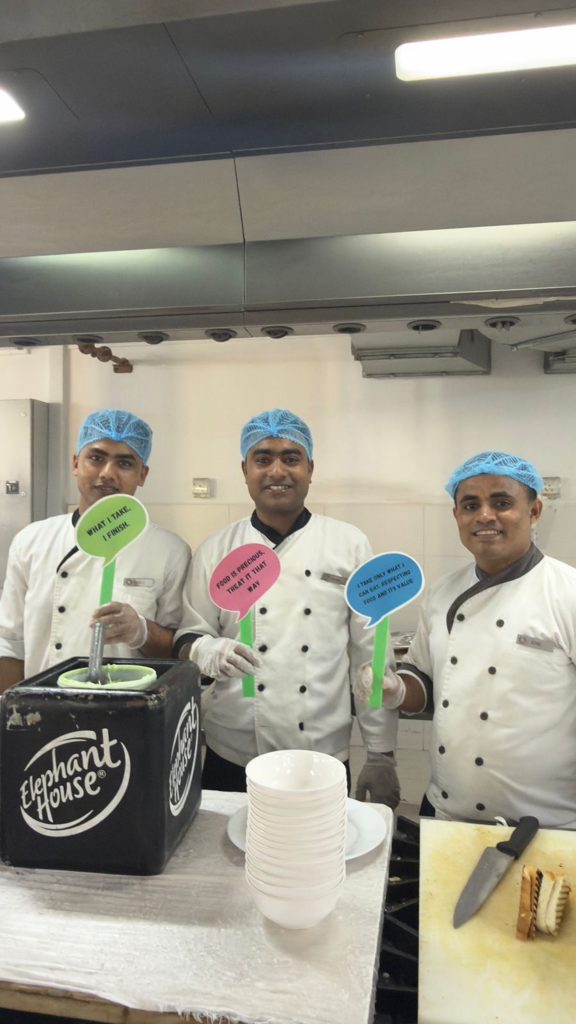
Both initiatives form part of Sun Siyam Care, the group’s corporate social responsibility platform, and align with the Social Infrastructure and Responsible Consumption and Production pillars under the GDS framework. Together, they reflect a people-first approach to sustainability—where everyday actions create lasting impact for teams, operations, and the wider community.
Sun Siyam Care is committed to creating a positive impact for people, communities, and the environment through responsible operations, social investment, and long-term sustainability actions across its destinations in the Maldives and Sri Lanka.
Guests are encouraged to learn more about these initiatives by visiting the Sun Siyam Care website at sunsiyam.com/sun-siyam-care.
Action
Sheraton Maldives Full Moon celebrates sixth anniversary of Reefscapers collaboration
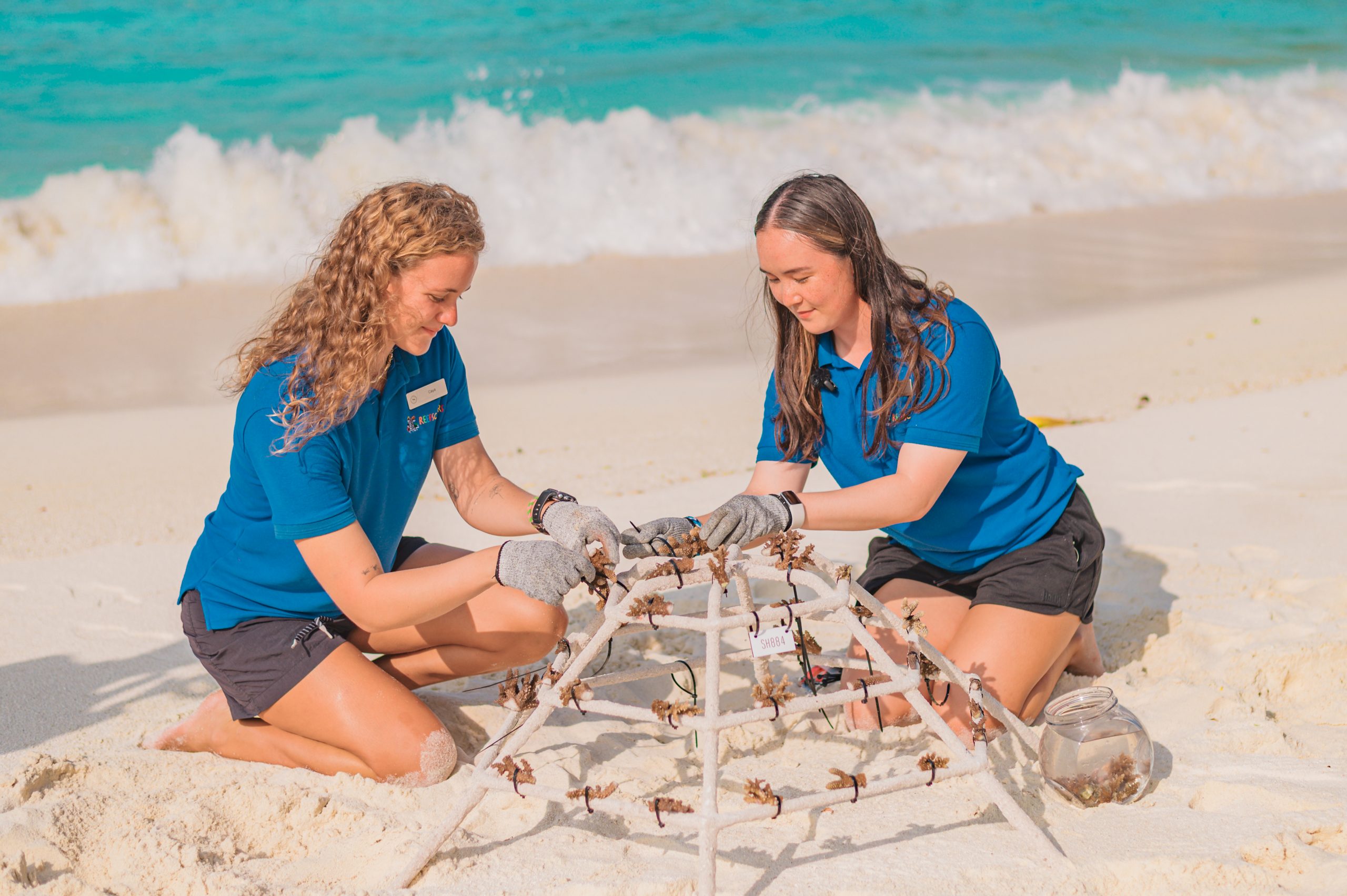
Sheraton Maldives Full Moon Resort & Spa marks the sixth anniversary of its partnership with Reefscapers on February 19, 2026, reaffirming its commitment to protecting and restoring the Maldives’ fragile reef ecosystems. Since launching the partnership in 2020, the resort and Reefscapers have worked together to restore coral habitats, support marine biodiversity, and engage guests in meaningful conservation experiences. The milestone also marks one year since the successful relocation of approximately five tons of coral to the resort’s house reefs — one of the partnership’s most significant conservation initiatives.
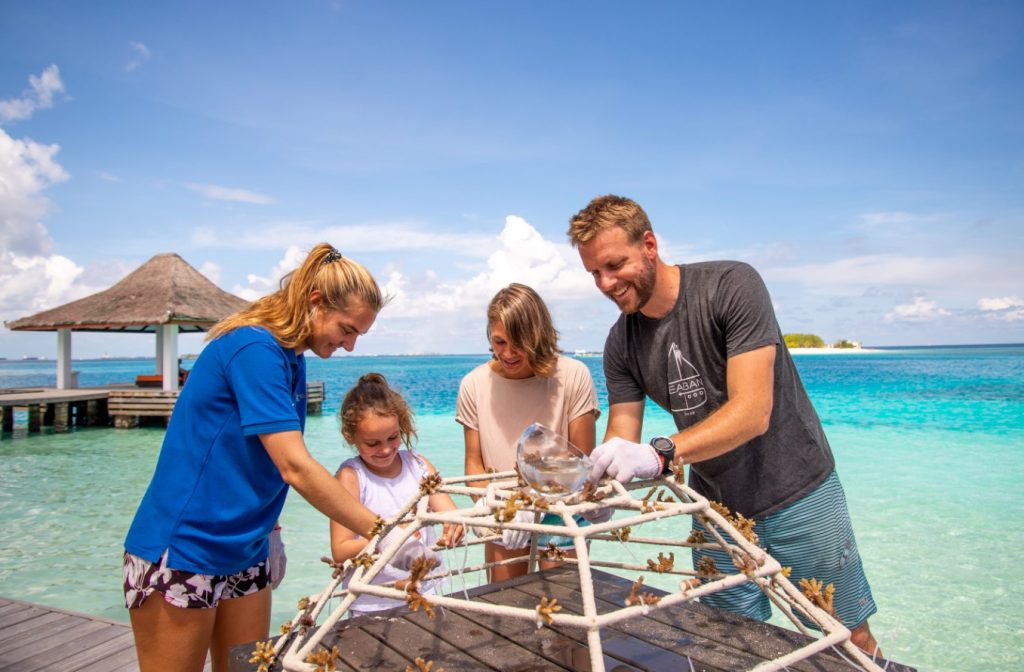
Over the past six years, the partnership has become a defining pillar of the resort’s sustainability journey, blending scientific restoration with purposeful guest engagement. To date, the initiative has resulted in the planting of 898 coral frames, supporting approximately 33,000 coral colonies now growing across the restoration sites. Through coral propagation, reef monitoring, and awareness programmes, these efforts continue to regenerate reef structures while deepening understanding of the essential role coral ecosystems play in sustaining marine life and protecting coastlines. Each thriving coral frame reflects a shared dedication to preserving the natural wonders that make the Maldives one of the world’s most extraordinary marine destinations.
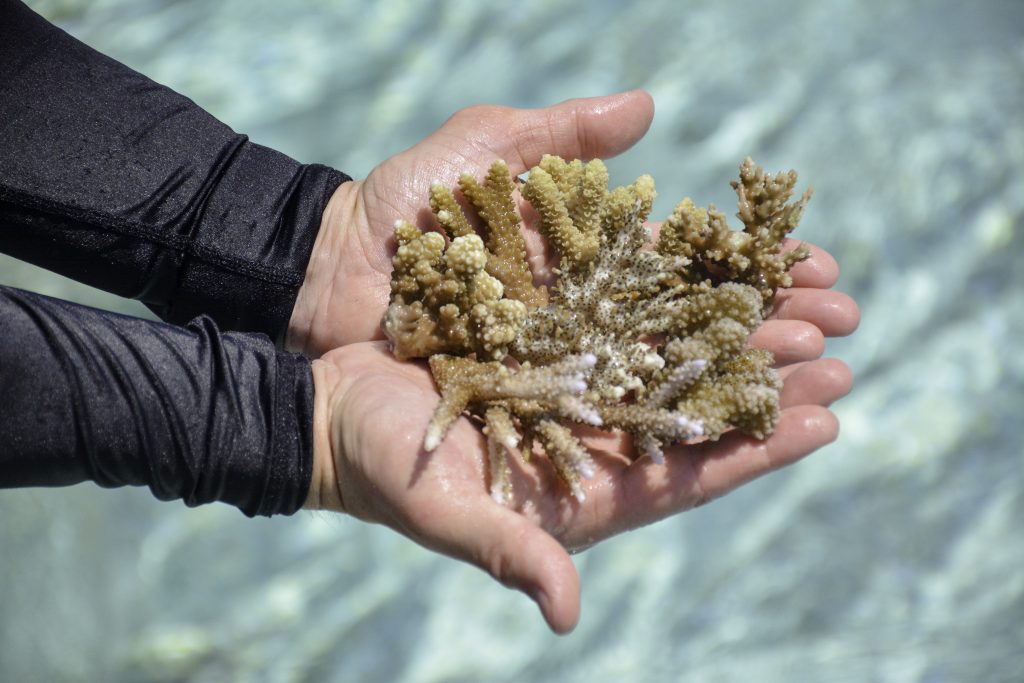
“What makes this partnership special is seeing how small, consistent actions turn into real change underwater. Watching the relocated corals settle, survive, and begin to grow over the past year has been incredibly rewarding for us and the guests who return and witness how they’ve helped restore a living reef,” shares Katelyn, the resort’s Marine Biologist.
A defining achievement of the collaboration has been the coral relocation project, which carefully transferred coral colonies from Ras Malé, also known as the Maldives Eco City, to the resort’s dedicated restoration site, safeguarding them from potential threats linked to land reclamation activities in the Fushi Dhiggaru Lagoon. One year on, these corals continue to flourish beneath the surface, strengthening reef resilience and contributing to the long-term health of the surrounding ecosystem.
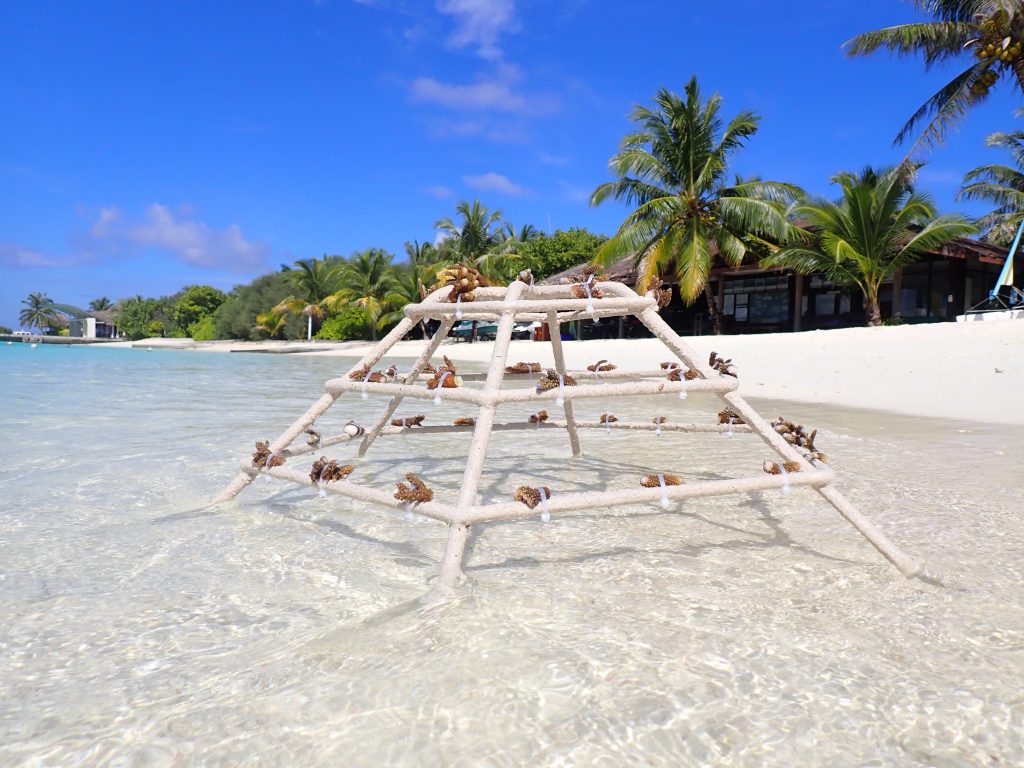
At the heart of the partnership lies the resort’s Adopt a Coral programme, part of the Good Travel with Marriott Bonvoy initiative, which encourages guests to travel with intention through meaningful environmental experiences. Through this hands-on activity, visitors can adopt and name a coral frame while learning directly from marine experts about coral ecology and the importance of protecting marine habitats.
To deepen this connection beyond the stay, guests receive growth updates on their adopted corals every six months, allowing them to follow the progress of their living contribution to the reef. As these corals grow over time, they become enduring symbols of renewal and shared responsibility, transforming a holiday memory into a lasting environmental legacy, and reflecting how travel can positively support local ecosystems and communities.
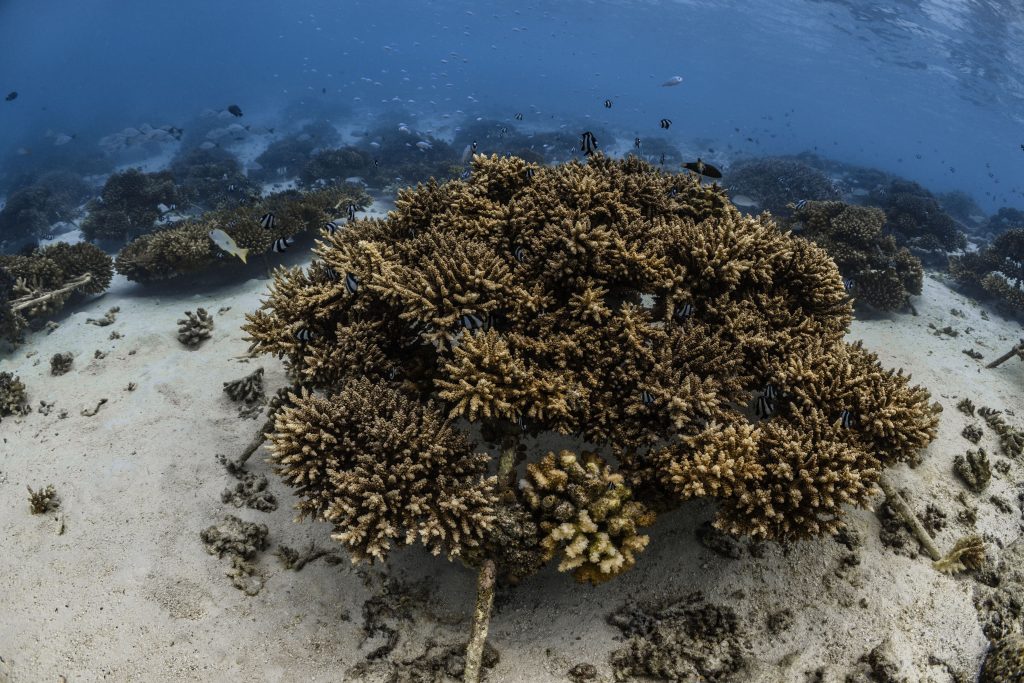
“Our island is surrounded by a remarkable marine environment, and protecting it is a responsibility we take seriously. Our partnership with Reefscapers reflects our belief that hospitality should go hand in hand with stewardship. Seeing the reef restoration progress over the past six years, and the involvement of our guests and associates in that journey, makes this anniversary especially meaningful for all of us,” comments Greg Allan, General Manager of Sheraton Maldives Full Moon Resort & Spa.
Through its continued collaboration with Reefscapers, Sheraton Maldives Full Moon Resort & Spa remains dedicated to advancing marine conservation while creating purposeful guest experiences rooted in sustainability, education, and connection to nature.
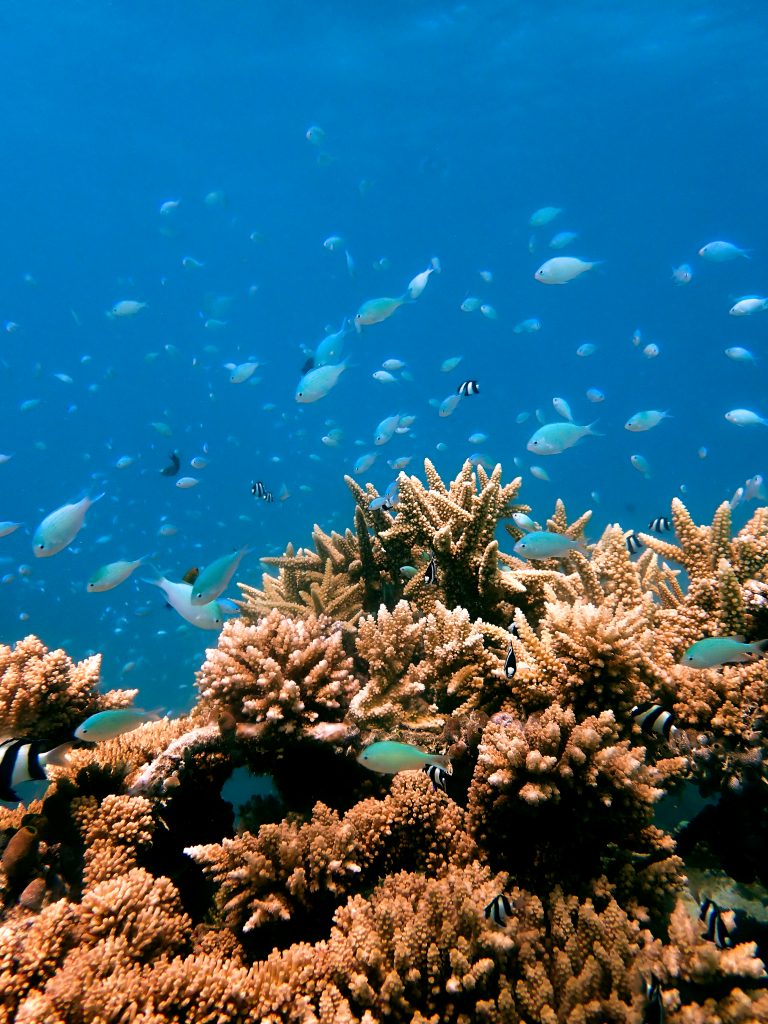
To discover more about the resort’s sustainability initiatives, join the Adopt a Coral programme, or plan a stay that supports reef conservation, visit sheratonmaldives.com or contact the reservations team at Sheraton.Maldives@sheraton.com.
Action
Sun Siyam Vilu Reef unveils expanded marine excursion portfolio

Sun Siyam Vilu Reef, part of the Sun Siyam Privé Collection, has introduced an expanded portfolio of water-based experiences designed to showcase the natural environment and marine life of the surrounding atolls. The enhanced programme combines exploration, activity and moments of calm, offering guests new ways to experience the Maldives through curated ocean journeys and personalised excursions.
Building on established activities such as Jet Car rides, SeaBob adventures and windsurfing, the resort has expanded its watersports offering to include private speedboat journeys and bespoke marine experiences. These additions are tailored for small groups seeking intimate and meaningful encounters with the ocean.
Available daily from the resort’s Watersports Centre, the new private speedboat excursions provide a personalised way to explore the hidden marine sites of Dhaalu Atoll. Designed for one to four guests, each journey offers flexibility and individual attention. Guests may choose from four-hour, five-hour or full-day itineraries, all of which include a freshly prepared barbecue lunch. From coral gardens to secluded sandbanks, the excursions highlight the region’s diverse marine landscapes.
The programme’s centrepiece is the Full Day Adventure Trip, which offers an extended exploration of key marine locations. Highlights include the Coral Garden, known for its biodiversity and reef formations; Turtle Point, where sea turtles are frequently sighted; and Nurse Shark Point, which provides opportunities to observe nurse sharks in their natural environment. The experience concludes with a beachside lunch on a private sandbank, set against uninterrupted views of the Indian Ocean.
For guests seeking a balance between activity and relaxation, the Waves of Adventure and Calmness experience combines a private two-hour snorkelling safari or Jet Ski safari with a full-body massage at the resort. The programme is designed to transition smoothly from ocean exploration to restorative island time, reflecting the relaxed pace that characterises Sun Siyam Vilu Reef.
As part of the Sun Siyam Privé Collection, Sun Siyam Vilu Reef continues to focus on personalised service and experiences rooted in the natural setting of the Maldives. Through its expanded watersports offering, the resort invites guests to engage with the marine environment while enjoying a sense of privacy, discovery and connection to the Maldivian seascape.
-

 News1 week ago
News1 week agoThe Ritz-Carlton Maldives, Fari Islands launches conservation programme for environmental observances
-
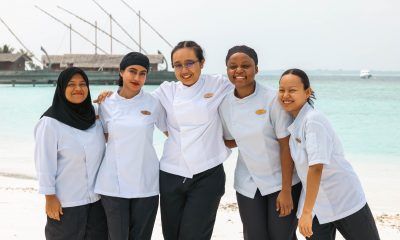
 Cooking1 week ago
Cooking1 week agoWomen at heart of kitchen: Milaidhoo Maldives marks International Women’s Day through gastronomy
-
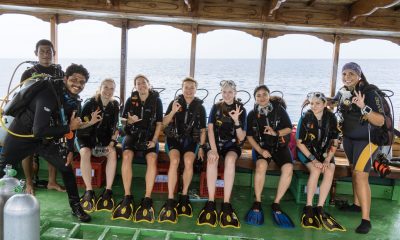
 Action1 week ago
Action1 week agoAtmosphere Foundation launches annual dive training scholarship for Maldivians
-

 Entertainment1 week ago
Entertainment1 week ago‘One festival, every sense’: Fari Islands Festival announces August 2026 return
-
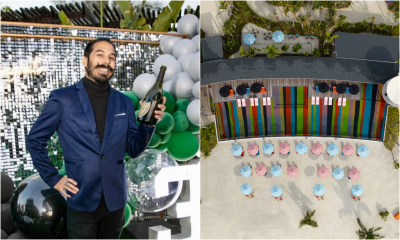
 Drink1 week ago
Drink1 week agoSO/ Maldives hosts tequila tasting and Lazuli Bar takeover for National Margarita Day
-

 Family1 week ago
Family1 week agoEaster goes playful at The Standard, Maldives with week-long Angry Birds celebration
-
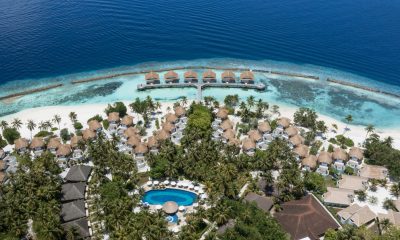
 Awards7 days ago
Awards7 days agoBandos Maldives earns Booking.com Traveller Review Award 2026
-
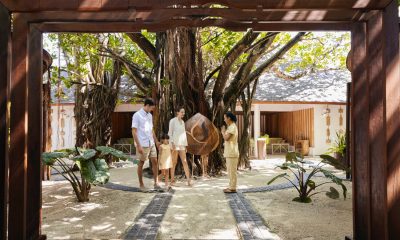
 Featured1 week ago
Featured1 week agoAncient banyan tree anchors spiritual experiences at Machchafushi Island Resort



